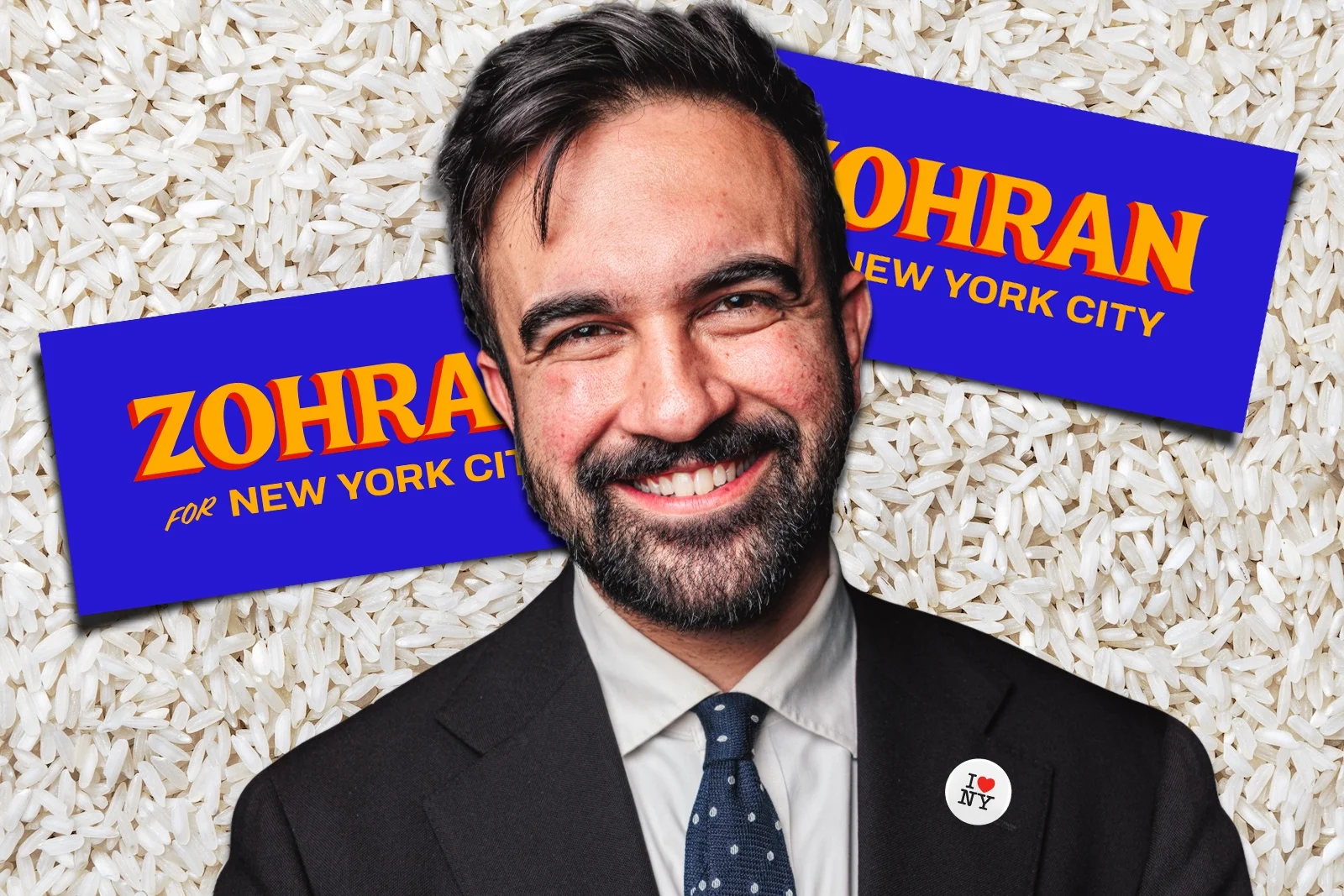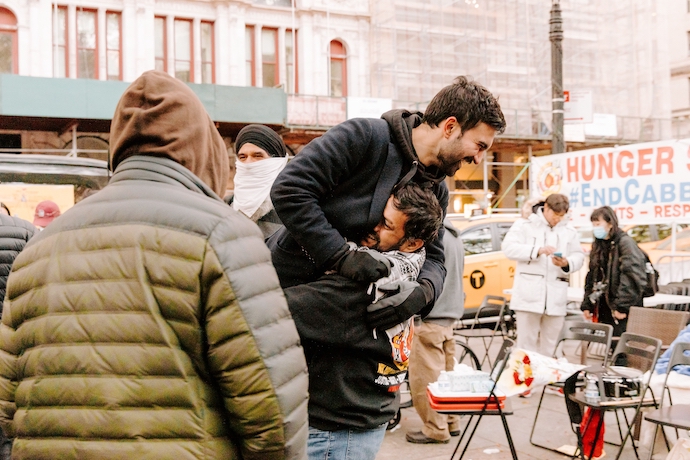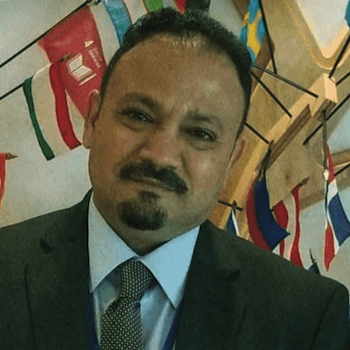
Culture
Don’t Tell Mamdani’s Critics, but People Eat Rice with Their Hands
When New York City mayoral candidate Zohran Mamdani ate rice with his hand, it sparked more than just a culinary debate. He was labeled uncivilized. One congressman went so far as to suggest that Mamdani either adopt Western customs or “go back to the Third World.”
But this wasn’t about etiquette or hygiene. It was about power. About who defines civilization and who is expected to conform. The outcry revealed something deeper and more enduring: the colonial scaffolding that still props up much of Western political culture.
In the age of sanitized cosmopolitanism, the idea that eating with your hands is “uncivilized” clings to the same Eurocentric mindset that once justified conquest. In Africa, Asia, and the Americas, colonialism didn’t just seize land—it waged war on local identities. David Livingstone’s three C’s mantra—civilization, commerce, and Christianity—offered moral cover for the empire’s ambitions. But behind the velvet curtain of evangelism and economic progress was a brutal campaign of cultural erasure.
Languages were buried. Names overwritten. Foods dismissed as savage. Rituals outlawed. The colonizer’s mission wasn’t just to govern, but to reshape entire societies in Europe’s image. Anything outside that image was backward, and everything native had to be corrected—or eliminated.
That civilizing impulse didn’t die with empire. It lives on in subtler, insidious forms. Today, it surfaces in how difference is policed—especially when that difference belongs to people of color, immigrants, or Muslims.
As a Muslim immigrant myself, I’ve witnessed how readily non-Western customs are mocked, pushed to the margins, or deemed incompatible with “modern” values. Mamdani’s case wasn’t about a fork or a spoon—it was a modern replay of the same old colonial reflex: difference must be tamed.
 We saw that same reflex when EU foreign policy chief Josep Borrell described Europe as a manicured “garden” and the rest of the world as a “jungle.” It was on display during the Ukrainian refugee crisis, when Western media pointed out—without irony—that these refugees were different from Syrians or Africans because they were “like us,” with “blond hair and blue eyes.” Or when a New Jersey referee forced a Black high school wrestler to cut his dreadlocks to compete. When a South Carolina senator slurred Nikki Haley as a “raghead.” When conspiracy theorists questioned President Obama’s birthplace. When the very idea of Ilhan Omar’s citizenship, or Mamdani’s, is treated as a question rather than a fact.
We saw that same reflex when EU foreign policy chief Josep Borrell described Europe as a manicured “garden” and the rest of the world as a “jungle.” It was on display during the Ukrainian refugee crisis, when Western media pointed out—without irony—that these refugees were different from Syrians or Africans because they were “like us,” with “blond hair and blue eyes.” Or when a New Jersey referee forced a Black high school wrestler to cut his dreadlocks to compete. When a South Carolina senator slurred Nikki Haley as a “raghead.” When conspiracy theorists questioned President Obama’s birthplace. When the very idea of Ilhan Omar’s citizenship, or Mamdani’s, is treated as a question rather than a fact.
All of it echoes the same message: if you don’t fit the dominant mold, you’re suspect.
And that mold is clear—white, Western, Christian. Anything outside of it is not only foreign, but deficient. And if you’re an immigrant or a person of color who dares to reject assimilation, your politics won’t be debated—your identity will be. Your name, your beliefs, your food, your body itself will be dragged into public court.
So why is eating rice with your hand “uncivilized,” but devouring pizza, wings, tacos, burgers, or fries with bare hands perfectly acceptable? We literally call food “finger-licking good.” Hygiene isn’t the issue here—cultural supremacy is.
This is about which culture gets to be the default and which is forever “other.”
Toni Morrison, in The Origin of Others, cuts to the core of this pathology: “The urgency of distinguishing between those who belong to the human race and those who are decidedly non-human is so powerful the spotlight turns away and shines not on the object of degradation, but on its creator.”
That compulsion to dehumanize—whether through race, religion, language, or lunch—has powered slavery, colonialism, Donald Trump’s rise to power, xenophobia, and modern bigotry. Morrison reminds us that in the act of degrading another, it is the one doing the degrading who is exposed. Their ideology, their fear, their fragility—all laid bare.
And that act of dehumanization persists. It happens every time a name is mocked, an accent ridiculed, or a cultural custom made to feel unwelcome. Immigrants are told, often implicitly, that they’ll only be accepted if they amputate the parts of themselves that don’t fit the dominant narrative.
Mamdani’s gesture was never just about food. It was about refusing to perform palatability. It was about not shrinking himself to fit into someone else’s idea of what is “proper.”
That kind of refusal is radical, especially when it comes from an elected official. Because when Black, brown, Muslim, immigrant leaders bring their full selves into power, it unsettles the old hierarchies: West over East. White over not. Forks over fingers.
And therein lies the irony: America is a nation built by hands—hands that cooked unfamiliar meals, carried languages across oceans, planted roots in new soil. Those hands helped build the country, not break it.
Diversity has never been the threat. It’s the foundation.
So when a sitting member of Congress tells an immigrant official to “go back,” he’s not just trafficking in racism. He’s invoking colonial nostalgia. A longing for the days when white men dictated the rules and those who didn’t comply were silenced or erased.
But this is the new reality: representation—real, unfiltered representation—is not going away. And it scares the hell out of those who’ve benefited from being the unquestioned default.
Mamdani’s rice wasn’t just rice. It was a quiet refusal to apologize for existing outside the mold. And that’s what rattles the halls of power: the realization that civilization isn’t defined by napkins and cutlery—but by justice, dignity, and the audacity to show up, unbowed.
If America is to be what it claims to be, we must go beyond tolerating other cultures. We must embrace them. That means rejecting double standards, shedding colonial habits of mind, and expanding what we mean when we say “civilized.”
Because eating rice with your hands doesn’t endanger civilization. Clinging to the idea that only one way is civilized? That does.
